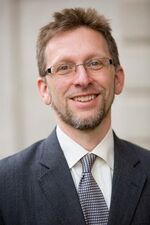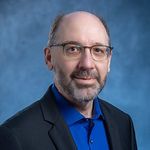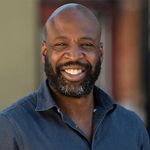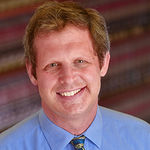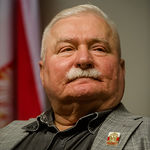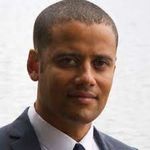Upcoming Speakers
“Freedom of Speech: A Conversation with Nadine Strossen”
Tuesday, Jan. 27, 2026 | 12:15-1:45 p.m. | DMF Auditorium | Reception to follow
Nadine Strossen
New York Law School
Nadine Strossen is the John Marshall Harlan II Professor of Law Emerita at New York Law School and is a past President of the American Civil Liberties Union. She is a Senior Fellow with FIRE (the Foundation for Individual Rights and Education) and a leading expert on constitutional law and civil liberties, who has testified before Congress on multiple occasions. She serves on the advisory boards of the ACLU, Academic Freedom Alliance, Heterodox Academy, National Coalition Against Censorship, and the University of Austin.
The National Law Journal has named Strossen one of America’s "100 Most Influential Lawyers," and several other publications have named her one of the country’s most influential women. Her many honorary degrees and awards include the American Bar Association’s prestigious Margaret Brent Women Lawyers of Achievement Award (2017). In 2023, the National Coalition Against Censorship (an alliance of more than 50 national non-profit organizations) selected Strossen for its Judy Blume Lifetime Achievement Award for Free Speech. Strossen is the author of HATE: Why We Should Resist It with Free Speech, Not Censorship (2018) and Free Speech: What Everyone Needs to Know® (2023). She is also the Host and Project Consultant for Free To Speak, a 3-hour documentary film series on free speech that was released on public television in 2023. Her book Defending Pornography: Free Speech, Sex, and the Fight for Women’s Rights was named a New York Times “notable book” of 1995, and was republished in 2024 as part of the New York University Press “Classic” series.
Strossen has made thousands of public presentations before diverse audiences around the world, including on more than 500 different campuses and in many foreign countries, and she has appeared on virtually every national TV news program. Her hundreds of publications have appeared in many scholarly and general interest publications. Strossen graduated Phi Beta Kappa from Harvard College and magna cum laude from Harvard Law School. Before becoming a law professor, she practiced law in Minneapolis (her hometown) and New York City. She is also a member of the Council on Foreign Relations.
Past Speakers
“Does Free Speech Fuel Hate or Foster Tolerance?”
Tuesday, Sept. 30, 2025 | 12:15-1:45 p.m. | DMF 120 | Reception to follow
Claudia Williamson Kramer
University of Tennessee at Chattanooga
Claudia Williamson Kramer is the Probasco Distinguished Chair of Free Enterprise and Professor of Economics at the University of Tennessee at Chattanooga. She is also the Director of the Center for Economic Education. Her main research interests lie at the intersection of applied economic development and political economy. A common thread of her work is the combination of incentive and knowledge arguments revealing interesting, and at times, unconventional results. Her recent research on free speech and minority rights is no exception.
Professor Kramer has authored over 55 articles in refereed journals, including the Journal of Law and Economics, World Development, Journal of Comparative Economics, Public Choice, Journal of Corporate Finance, Journal of Institutional Economics, European Journal of Political Economy, Defense and Peace Economics, and the Southern Economic Journal. Her research has also appeared in popular press outlets, such as The Economist and the BBC. Professor Kramer currently serves as an editor for the Journal of Institutional Economics, on the editorial board of Public Choice, on the board of trustees for the Southern Economic Association, and on the board of fellows for the Institute of American Civics at the University of Tennessee. She served as the 2022-2023 President of the Association of Private Enterprise Education (APEE) and has served on the U.S. Commission on Civil Rights Mississippi Advisory Committee. Professor Kramer earned her undergraduate degree in economics from Marshall University and her PhD in economics from West Virginia University. She was a post-doctoral fellow at the Development Research Institute of New York University from 2009-2012, and was a professor at Mississippi State University prior to her appointment at Tennessee.
Watch the video of this event »
“Speak Openly to the World: Academic Freedom in Divided Times”
Tuesday, April 1, 2025 | 12:30-2 p.m. | DMF Auditorium
Jacob T. Levy
McGill University
Jacob T. Levy is Tomlinson Professor of Political Theory and associated faculty in the Department of Philosophy at McGill University. He is the coordinator of McGill’s Research Group on Constitutional Studies and was the founding director of McGill’s Yan P. Lin Centre for the Study of Freedom and Global Orders in the Ancient and Modern Worlds. He is a Senior Fellow at the Niskanen Center, and has been a Distinguished Fellow for the Study of Liberalism and the Free Society of the Institute for Humane Studies, and a Templeton Adam Smith Tercentenary Fellow at The University of Glasgow. Levy is the author of The Multiculturalism of Fear (OUP 2000) and Rationalism, Pluralism, and Freedom (OUP 2014), and editor or coeditor of Colonialism and Its Legacies; Nomos LV: Federalism and Subsidiarity; Interpreting Modernity: Essays on the Work of Charles Taylor; and the forthcoming Oxford Handbook of Classics in Contemporary Political Theory. He holds a B.A. in Political Science from Brown University, an M.A. and Ph.D. in Politics from Princeton University, and an LL.M. from the University of Chicago Law School. He serves on the editorial board of The American Political Science Review and The American Journal of Political Science. His writing on contemporary questions has been published in The New York Times, The Washington Post, The Los Angeles Times, The Chicago Tribune, The Globe and Mail, Vox, Foreign Policy, Salon, The Australian, Slate (France), The Chronicle of Higher Education, Reason, The Boston Review, and The New Republic.
Watch the video of this event »
“Mill, Harm, and Campus Speech”
Tuesday, Sept. 17, 2024 | 12:15-1:45 p.m. | DMF Auditorium
Andrew J. Cohen
Georgia State University
Incorporating insights from John Stuart Mill’s classic On Liberty, Prof. Cohen speaks directly to current issues of speech on campus. Why are freedom of thought and action so important? What is harm? What harms come from silencing speech? In a university setting in particular, Cohen examines the need for intellectual diversity and the major harm that comes without it.
Andrew Jason Cohen is Professor of Philosophy and Founding Director of the Interdisciplinary Studies Program in Philosophy, Politics, and Economics (PPE) at Georgia State University. He is the author of Toleration and Freedom from Harm: Liberalism Reconceived (Routledge, 2018) and Toleration (Polity, 2014). He is currently working on a book on civil discourse.
Watch the video of this event »
“Anti-Racist Education is Anti-Everything Except Racism”
Tuesday, March 12, 2024 | 12:15-1:45 p.m. | Moakley Auditorium
Dr. Erec Smith
Associate Professor of Rhetoric, York College of Pennsylvania
Watch the video of this event »
“Free Speech in Higher Education”
Tuesday, Oct. 31, 2023 | 12:30 p.m. | Moakley Auditorium
Eugene Volokh
Professor of Law, UCLA; noted First Amendment expert
Watch the video of this event »
“Dialogues in Democracy”
Tuesday, Oct. 3, 2023 | 7 p.m. | Rondileau Student Union Auditorium
Lech Wałęsa
President of Poland; Nobel Laureate & Global Leader
Watch the video of this event »
On Tuesday, Oct. 3, President Lech Wałęsa came to Bridgewater State University. A pro-democracy dissident and union organizer, Wałęsa answered questions from about 20 students before giving a talk to more than 1,000 people. Read more about Wałęsa's visit »
“Free Speech: A History from Socrates to Social Media”
Sept. 20, 2022
Jacob Mchangama
Executive Director of Justitia; 2016 Marshall Memorial Fellow
Watch Jacob Mchangama on YouTube »
Jacob Mchangama traces the legal, political, and cultural history of the idea of free speech. From the ancient Athenian orator Demosthenes and the ninth-century freethinker al-Rāzī, to the anti-lynching crusader Ida B. Wells and modern-day digital activists, Mchangama reveals how the free exchange of ideas underlies all intellectual achievement and has enabled the advancement of both freedom and equality worldwide. Yet the desire to restrict speech, too, is a constant, and he explores how even its champions can be led down this path when the rise of new and contrarian voices challenge power and privilege of all stripes.




